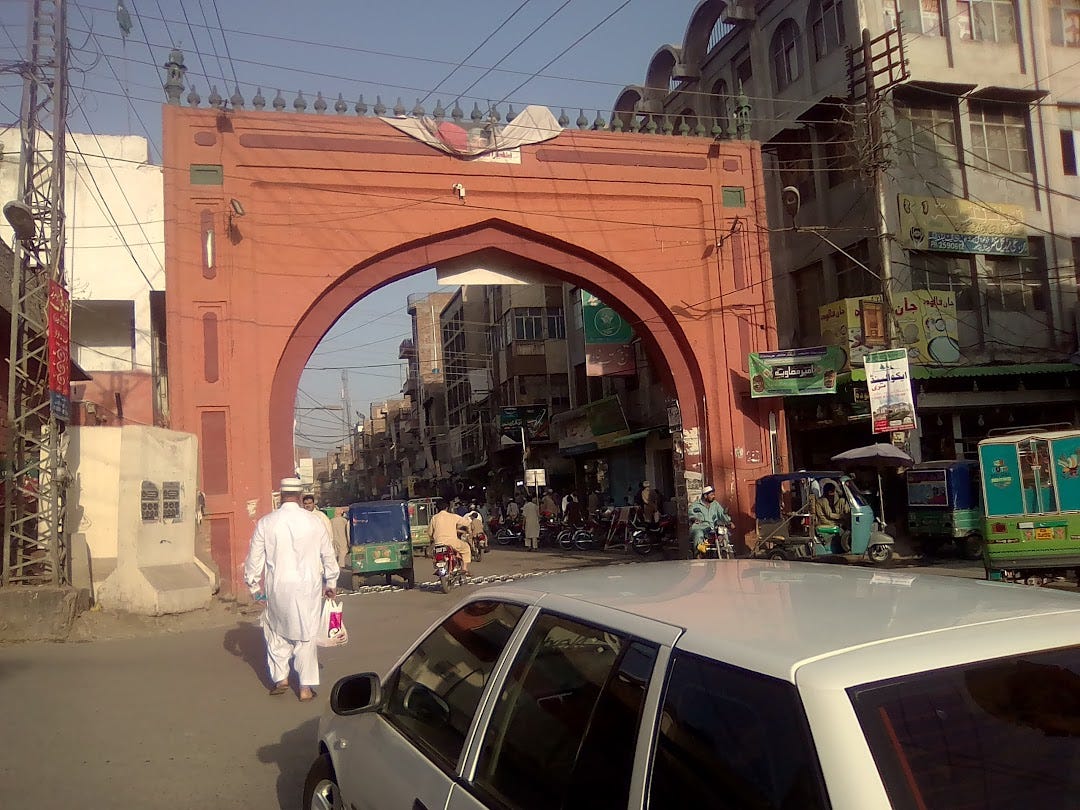By: Zeeshan Yaqoob
Peshawar’s Qissa Khwani Bazaar, a marketplace steeped in history, remains one of Pakistan’s most significant cultural landmarks. Situated in the capital of Khyber Pakhtunkhwa province, this ancient bazaar serves not only as a hub for trade but also as a key symbol of the city’s enduring heritage. With its roots extending back to the Mughal era, possibly the 17th century, the bazaar’s name, meaning “Bazaar of Storytellers,” points to its unique historical role in the region as a place where storytellers gathered to share tales with the public.
Today, Qissa Khwani continues to thrive as a bustling market, offering a wide array of goods such as spices, fabrics, handicrafts, and jewelry. However, it is much more than a center of commerce. The bazaar reflects the vibrant diversity of Peshawar’s population, with the lively atmosphere and narrow alleys offering a rich sensory experience for visitors. Its cultural importance is evident in the way it has maintained its traditional character, despite the pressures of modernization.
The historical significance of the bazaar is profound. One of the most tragic and defining moments in its history occurred in 1930, when British colonial forces opened fire on a peaceful protest, resulting in the infamous Peshawar Massacre. This event remains a key chapter in the region’s struggle for independence from British rule and solidified Qissa Khwani’s role in the broader narrative of the subcontinent’s history.
Over the centuries, the bazaar has inspired numerous poets, writers, and artists. The sights, sounds, and architectural beauty of Qissa Khwani have often found their way into literary and artistic works. Its intricate wooden facades, carved balconies, and Mughal-inspired architecture offer not only a glimpse into the region’s past but also a continuing source of inspiration for creatives seeking to capture the essence of Peshawar’s culture.
In addition to its cultural and historical importance, Qissa Khwani offers visitors a chance to explore the region’s culinary heritage. Traditional Pashtun dishes such as kebabs, chapli kababs, and Peshawari naan can be found throughout the bazaar, providing a flavor of the region’s rich gastronomic traditions. For many, this culinary experience is an essential part of any visit to the bazaar.
Ultimately, Qissa Khwani Bazaar stands as a living monument to Peshawar’s past and present. Its enduring appeal lies in its ability to merge tradition with the realities of contemporary life, serving as both a marketplace and a cultural hub. It remains a testament to the resilience of the people of Peshawar, offering visitors not just a glimpse into history but a connection to the living traditions that continue to define the city.


